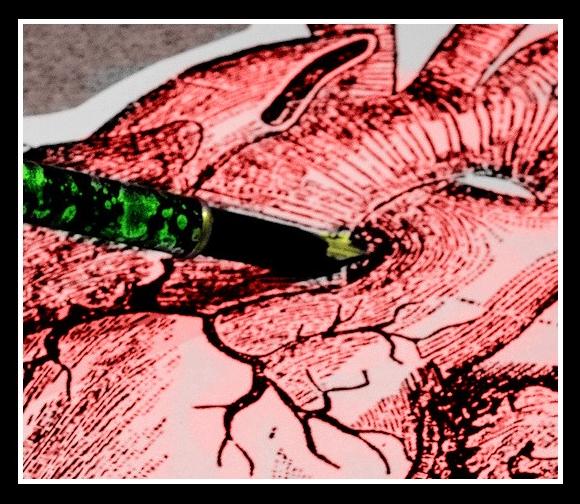You have no items in your cart. Want to get some nice things?
Go shopping
Sam Mendes’ totalitarian King Lear has been holding a terrible, gory court at the National Theatre since January; a mic away on Sunday, Southwark Playhouse hosted SALT Theatre’s irreverent spins on Shakespeare’s grimmest tragedy themselves. Their Write at the Heart series seeks the alchemy that transforms a classic play into a new one, a Shakespeare into a Stoppard, and while there are no Rosencrantzes and Guildensterns here, the six playlets at this development night all found compelling tangents to Lear to explore. It was all staged on the bleak, post-apocalyptic rubble of a stripped down rendition of Dennis Kelly’s Debris and somehow it works. The debris field stage left was an unsettling obstacle for the actors to overcome, a material echo of the catastrophe of their relationships. It worked as well in a military camp as it did in a hospital waiting room, a McDonald’s, and a family kitchen.
Lear himself was peripheral, but no less forceful. He surfaced in Catriona Kerridge’s painfully sidesplitting “Flustered” as an elderly father, jet-setting and drug-smuggling in the throws of dementia. He tried to learn Welsh and catch an international flight, wandered naked into the hall after mistaking it for the bathroom, and roated a chicken stuffed with £10k of cocaine (surely these are the surreal, modern-day equivalents of wandering the heath decked in flowers with a fool during an thunder storm). Most of this lunacy was offstage, recounted by one daughter to the other. These stories were hilarious but bruising: parental decay became an accusation and filial duty and old favouritism were weaponised in a struggle over caregiving.
The mad father was entirely unseen in “Elephant and My Castle”, by writer and previous Litro contributor Phoebe Eclair-Powell. But as his squabbling Goneril, Regan and Cordelia waited in a hospital anteroom for him to die his presence was unrelenting, even tyrannical. The sisters’ fights broke along the lines of his favouritism and on their interpretations of his madness—was it fantastical or just pitiful—as his heartbeat was piped into the theatre. They bickered in caustic, hysterical and endless loops, interrupting each other to scream about childhood acne and chubbiness, rehearsing fights they knew so well they’d honed them down to barbs: “Bad breath!” “Fat!” I have a mad, dead dad and as he died my sisters and I screamed about who had the best teeth and whether orthodontic intervention disqualified a particular set of them. “Elephant and My Castle” stung in a very personal way.
These plays mostly lingered in Lear’s voids, particularly in the well-noted absence of mothers. Jodi Gray’s “Broken Meats” envisioned the missing mothers of Lear as non-custodial parents, mothers who have been judged unfit. In searing deconstruction of the rituals of divorce and non-custodial visitations the mothers sat among dozens of fathers in a McDonald’s, sharing their insecurities and regrets about motherhood and the injustices of custody and watching through the glass as the children they rarely saw fought on the playground. Allusions to Lear drew laughs (one woman is mother to “two older girls, beating up a very much littler girl”) but one mother’s final assertion—that the fathers and the justice system aligned with them won’t even tell bad stories about these mothers; they’ll just erase them—was painfully resonant.
The mother in Sam Grabiner’s “Pelican” was an unsettling presence at the kitchen table: an urn placed there after suicide and botched cremation and funeral. The absurdist horror of her memorial, the stumbling pallbearers and charred, flung body parts, was simply prelude to the brutal, evasive fight that erupted between her husband and son. They flung accusations of abuse and responsibility for her suicide until we didn’t know whom to believe. The symbolism of the mother pelican, piercing her breast with her beak to feed her starving young with her blood, aligns with her son’s story: his father beat the mother and pushed her to suicide, but not before saving him with a confession of his father’s brutality. But the final image of the father, weeping into a fistful of her ashes, reversed the imagery: perhaps, he’s the sacrificial parent, caring for a mentally ill spouse and protecting their son from the worst of her psychosis.
These riffs on Lear worked best when they tackle the fraught personal relationships that detonate its war. The plays that faltered did shoehorned political topicality. Joseph Wilde ‘s “Bad Joke” speculated about the fate of Lear’s fool, who famously disappeared after the second act, imagining him in a prisoner of war camp under the supervision of two amateur torturers. The fool here was more of a birthday party clown than Shakespeare’s sly truth-teller and the humour of a juggling PoW and his bungling captors, who don’t have enough equipment or time to carry out the ordered Guantanamo-style torture, wore quickly. This vague, allegorical Afghanistan/Iraq commentary—the futility of war, soldiers wrestling with violence, humanity, and their mortality—has been rehearsed countless times over the last decade, and “Bad Joke,” with its 2004 talking points about waterboarding, never transcends a Michael Moore-style slapstick satire. Finally, Maud Dromgoole’s “Selkie” recreated children’s banter seamlessly, but its high-concept pretense—Scotland has a skin like a selkie and the children have to find it—sunk quickly. Shakespeare may have intended King Lear as a parable for James VI and I about the dangers of dividing his kingdom between his sons, in which case the tragedy could actually be warning about political division. I don’t want to strain the parallels too far though: the peaceful force of Cordelia might just have to be Cameron or Miliband then.
Read more about SALT Theatre on their website.





